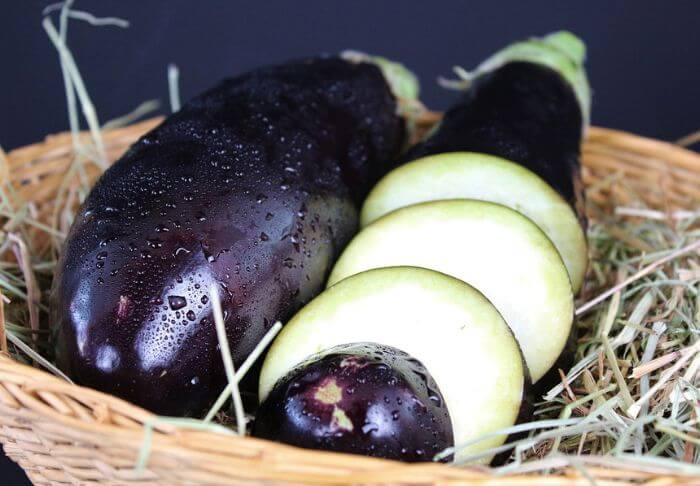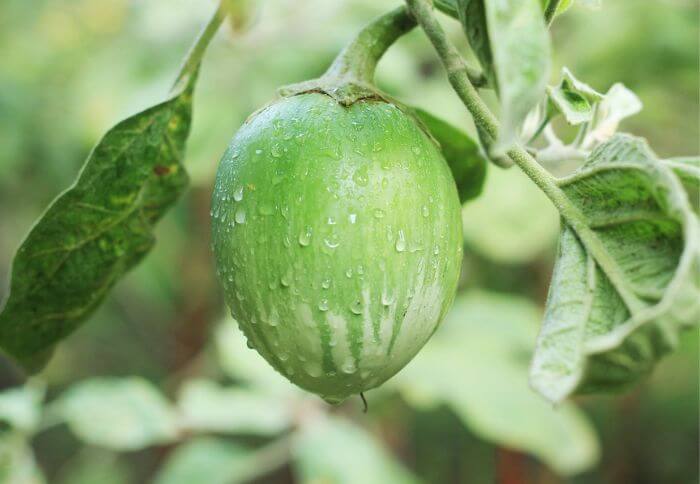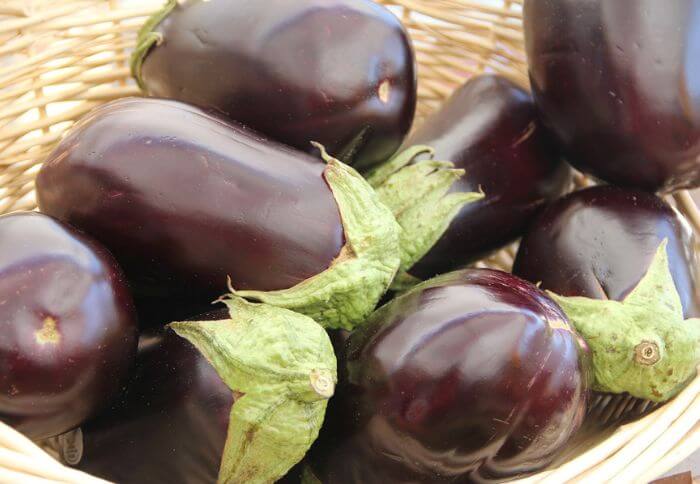What comes to mind when you hear the word eggplant? Perhaps it’s the vibrant purple hue and unique shape that makes it stand out.
Or maybe, it’s the delicious dishes like eggplant parmigiana or baba ganoush that come to mind. But here’s a question for you: have you ever wondered if eggplants need to be refrigerated?
That’s right, this seemingly simple vegetable has sparked an age-old debate among chefs and home cooks alike. So, grab your apron and let’s dive into the world of eggplants and their optimal storage conditions.
Factors that affect eggplant shelf life
There are several factors that can affect the shelf life of eggplants, and understanding these factors is key to ensuring their freshness and taste. One major factor is temperature.
Eggplants should be stored in cool temperatures (between 45°F and 50°F) to maintain their quality for a longer period. If stored at higher temperatures, they tend to ripen quickly and spoil faster.
Another important factor is moisture. Eggplants have a high water content, making them prone to dehydration if not stored properly. Keeping them in a humid environment or wrapping them in damp paper towels can help prevent this issue.
Additionally, the presence of ethylene gas can significantly impact the shelf life of eggplants. Ethylene gas is naturally produced by fruits and vegetables as they ripen, but it can also speed up the process of decay in other produce items nearby.
To avoid premature spoilage, it’s best to store eggplants separately from ethylene-producing fruits like apples or bananas.
By taking into consideration these factors – temperature, moisture, and exposure to ethylene gas – you can maximize the shelf life of your eggplants and enjoy their deliciousness for longer periods without compromising on taste or quality.
Freezing eggplants
Can you freeze eggplants raw?

Freezing raw eggplants might not be the most common method of preserving them, but it can certainly be a practical solution.
While many people argue that eggplant should be cooked before freezing to maintain its texture and flavor, there is evidence to support the idea of freezing them raw. The key is to properly prepare the eggplants for freezing.
When freezing raw eggplants, it is essential to blanch them first. Blanching helps preserve their color and texture while also stopping enzymatic activity that can cause undesirable changes during storage.
Start by cutting the eggplant into desired shapes and sizes before blanching in boiling water for just a couple of minutes. To prevent overcooking, promptly transfer the blanched slices into an ice bath to cool them down rapidly.
One advantage of freezing raw eggplants is that they retain their firmness better than when they are cooked before freezing.
This makes frozen raw eggplants perfect for dishes like stir-fries or ratatouille where you want some bite and texture from your vegetables. Freezing them raw also allows you to cook with more control over flavors since you can season and spice them according to your preference after thawing.
Freezing eggplant slices
Freezing eggplant slices is a game-changer when it comes to meal preparation. Not only does it extend the shelf life of this versatile vegetable, but it also adds convenience to your cooking routine.
Imagine having perfectly sliced eggplants ready to be used at any time, without worrying about spoilage! By freezing them, you’ll always have this nutritious ingredient on hand for a quick stir-fry, ratatouille, or even a cheesy moussaka.
One interesting point to note is that freezing actually enhances the texture of eggplant slices. The cell walls break down during the freezing process, resulting in a softer and smoother consistency when cooked.
This characteristic can be particularly appealing for dishes like baba ganoush or oven-baked parmesan crusted eggplant – where tenderness is key to achieving that melt-in-your-mouth experience.
However, if you plan on using frozen eggplant slices in dishes that require structural integrity or crunchiness (such as grilling or pan-frying), I would recommend blanching them before freezing.
This method involves briefly boiling the slices and then immediately plunging them into an ice bath to cool rapidly. Blanching helps preserve some firmness in the texture while still allowing for easier slicing and handling after thawing.
Related Read: Learn how to sweat eggplants
How long does eggplant last in the fridge?

As a versatile and nutritious vegetable, eggplants are a staple in many kitchens. However, whether or not they need to be refrigerated is an ongoing debate.
While it’s true that eggplants can last for a few days on the counter, storing them in the fridge can significantly extend their shelf life. Properly stored, eggplants can last up to two weeks in the refrigerator.
One key factor in prolonging eggplant freshness is to avoid washing them before storage. Washing eggplants increases their susceptibility to moisture and mold growth, which can cause them to spoil quickly. Instead, wait until you’re ready to use the eggplant before giving it a gentle wash.
Another tip for maximizing shelf life is to store your eggplant in a loose plastic bag or wrap it with paper towels. This helps absorb excess moisture and prevent rotting. Additionally, keeping your eggplant away from other fruits or vegetables that release ethylene gas can help prevent premature ripening and spoilage.
When Not to Refrigerate
Contrary to popular belief, refrigeration is not always necessary or beneficial for eggplants. While it may seem like a logical step to preserve their freshness and extend their shelf life, storing eggplants in the fridge can actually diminish their flavor and texture. This is because cold temperatures can cause the flesh of the eggplant to turn brown and develop a bitter taste.
Moreover, refraining from refrigeration allows eggplants to fully ripen and develop their natural sweetness. Similar to bananas, these dark purple vegetables benefit from being stored at room temperature until they reach an optimal stage of ripeness.
The vibrant glossy skin of an eggplant should be firm but give slightly when pressed gently with your fingertips – a sign that it is perfectly ripe and ready to be enjoyed.
Additionally, avoiding refrigeration opens up opportunities for creative culinary experiments with eggplants. When kept at room temperature, these versatile veggies are more suitable for grilling or sautéing as they retain moisture better than those that have been chilled.
On the other hand, refrigerator-stored eggplants tend to become mushy when cooked due to excessive moisture loss during chilling.
Other Storage Solutions for Aubergine

1. One option is to store your eggplants in a cool, dry place such as a pantry or cellar. Ensure that the area is well-ventilated and away from direct sunlight, as heat and light can cause the eggplants to spoil quicker.
Additionally, wrapping each individual eggplant in paper towels or newspaper can help absorb excess moisture, preventing rot from setting in.
2. Another interesting alternative to refrigeration is blanching the eggplants before storage. Simply boil a pot of water and immerse the whole eggplant for about 3 minutes before transferring it into an ice bath to cool down rapidly.
This process helps preserve their color, texture, and flavors while extending their shelf life for up to five days when stored in a loosely sealed container at room temperature.
3. Lastly, pickling or fermenting your eggplants can provide not only a unique storage method but also add depth to their flavors.
Simply slice or cube the eggplant and soak them in your favorite brine or vinegar mixture with spices like garlic and dill for two weeks at room temperature.
The result will be tangy, slightly acidic pieces of preserved eggplant that can be enjoyed as condiments or added into salads.
Related read: soaking eggplants in milk– step by step process
Signs of Spoilage and How to Prevent It

When it comes to eggplants, appearance is key. One common sign that your eggplant is spoiling is a dull and wrinkled skin. Fresh eggplants should have a shiny and smooth outer surface. Additionally, if you notice any soft spots or discoloration on the eggplant, it’s time to toss it out.
Another way to tell if your eggplant has gone bad is by feeling its weight. A fresh eggplant will be firm and heavy for its size. However, as it starts spoiling, it will become lighter and may even feel mushy when you give it a gentle squeeze.
Lastly, take note of the smell of your eggplant. A fresh eggplant will have a mild or slightly sweet scent. If you detect any unpleasant odor, like a strong ammonia-like smell or something rotten, chances are your precious vegetable has seen better days.
Final Thoughts:
While refrigerating eggplants is not necessary, it can help prolong their shelf life and maintain their freshness. However, proper storage conditions play a crucial role in preserving the quality of eggplants.
Keeping aubergines in a cool, dry place is essential. Additionally, it’s important to store them separately from other fruits and vegetables that emit ethylene gas, which can cause spoilage.
By following these guidelines, you can ensure that your eggplants stay fresh and delicious for longer periods of time.
source:

